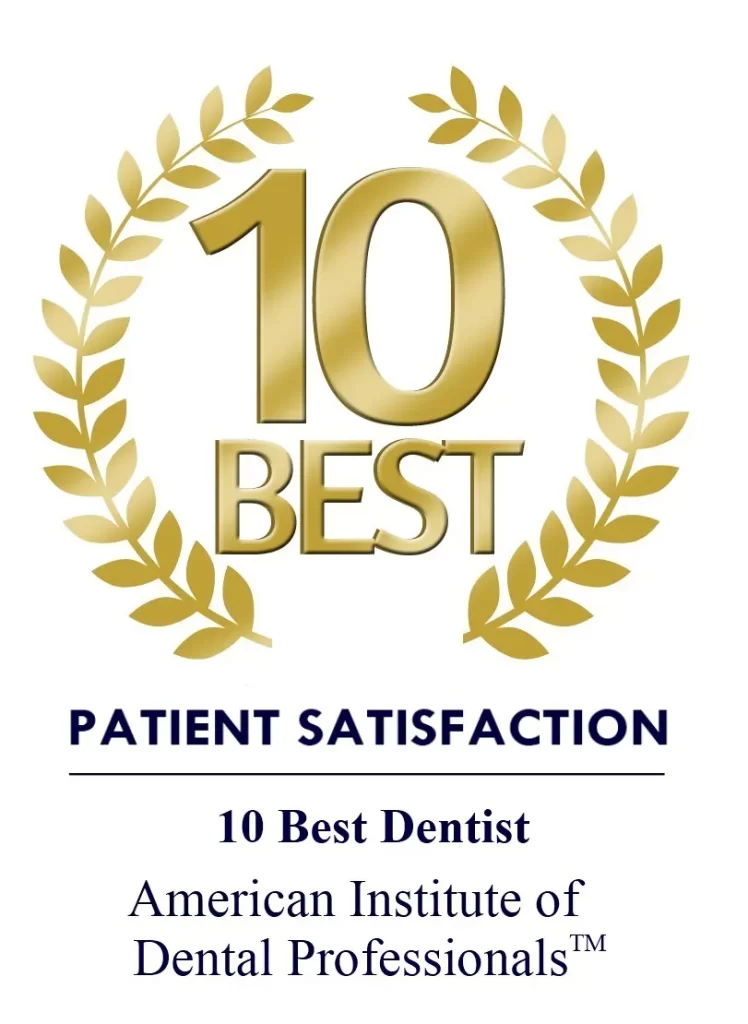You’ll likely visit a regular dentist when you need services like routine check-ups, cleaning, and x-rays. They help to keep your oral health in good standing and hopefully prevent you from severe conditions like gum disease. Also, a dentist will likely be the professional who notices the signs of periodontal disease/gum disease and refers you to a gum specialist, Periodontist.
A periodontist is a dentist who gets additional training for two/three years after dental school to learn how to manage the supporting structures of the teeth including the gums and jawbone.
To have healthy teeth, the gums also need to be healthy. If they’re not, they can become infected and unable to support your teeth.
The only way to help this type of condition is to enhance the health of your gums, which is what a periodontist does.
During their training, they learn about periodontal treatment, surgical procedures, dental implant placement, and non-surgical procedures such as scaling & root planing (deep cleaning).
What Is Gum Disease?
Gum disease, also known as periodontal disease, is a result of bacterial growth in the mouth. It can lead to tooth loss due to damage to the tissue that surrounds the teeth.
The first stage is usually gingivitis, which is gum inflammation. However, not all gingivitis turns into periodontitis. When gingivitis begins, the bacteria in the plaque causes the gums to become swollen.
The inflammation causes the gums to bleed when flossing and brushing easily. If gingivitis goes untreated, then it will progress into periodontitis.
What Causes Gum Disease?
Several factors contribute to a person getting gum disease. Here are some of the factors:
Bad Oral Hygiene
Not brushing your teeth or flossing every day makes it easier for gingivitis to occur. The best way to combat it is with consistent oral care. Otherwise, your mouth becomes a breeding ground for bacteria, which can lead to various kinds of oral diseases.
Bad Habits
Smoking is detrimental to your gums and teeth. When you smoke, it makes it more difficult for gum tissue to repair itself. Not only will it damage your teeth and gums, but it causes other health issues as well.
Health Conditions
Diseases affecting other parts of your body can also damage your gums. Illnesses like cancer or HIV disrupt the immune system. Therefore the body is more prone to infections, which include cavities and periodontal disease.
Family History
Some oral diseases are genetic. Even if you have good oral hygiene, it could run in the family. If you know this to be true about your family history, the best way to prevent it is by taking care of your oral health and visiting the dentist regularly.
Periodontal Treatment
Luckily, there are treatments available to help you restore the health of your teeth and gums. Below are the most common periodontal treatments:
Scaling/Root Planing
To ensure the continued health of gum tissue, the pockets are thoroughly cleaned. To further eliminate infection, a medicated mouthwash may be prescribed to incorporate into your daily oral routine. Sometimes, localized treatment with antibiotics may be recommended.
Tissue Regeneration
When your gum tissues become damaged, periodontal surgery is needed. Bone grafting procedures are used to activate regrowth. A membrane is put into the affected area to promote the regeneration process. The procedure rebuilds the damaged area.
Dental Implants
Sometimes periodontal disease causes a person to lose their teeth. If this happens, the tooth can be restored by implanting prosthetic teeth into the jaw bone. However, teeth regeneration might be needed before adding a dental implant to strengthen the bone structure.
Restore Your Oral Health
If you are experiencing any of the symptoms of gum disease listed above, it’s imperative to see a periodontist as soon as possible, and we can help.
Our experienced periodontal team provides a variety of services, including laser gum treatment and more.
If you have any questions, feel free to contact us or give us a call at 718-878-4878. We look forward to helping you improve your smile!

